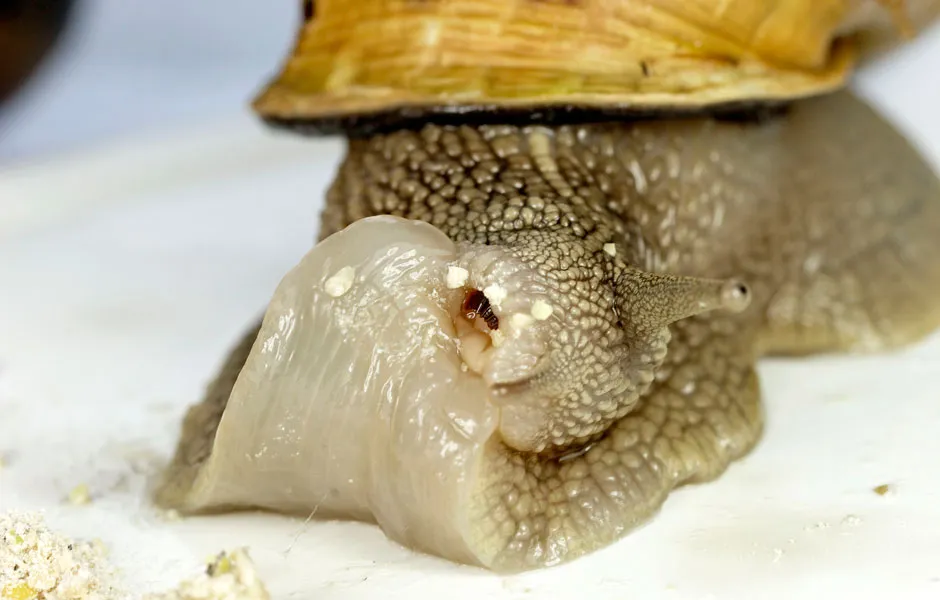Hope you like your science gross and slimy as it’s time to dive into a major gastropod conundrum: do snails have teeth?
Answer: yes, And between 1,000 and 12,000 of them. However, snail teeth are very different from the pearly whites in your mouth.
“Most snail species have a tongue that’s similar to ours, except theirs is covered in rows and rows of tiny little teeth,” explains Dr Gordon Port, senior lecturer at Newcastle University.
“A snail will use its toothy tongue – called the radula – almost like a file, scraping off the softer parts of their food when eating. Their teeth normally get worn down by this action, so they’re replaced regularly.”
Read more:
There are also some (downright terrifying) radula variations. Species such as cone snails – that are mainly found in warm and tropical waters – have a venomous radula that is used to paralyse prey before eating.
In case you’re wondering, slugs also have a radula, which similarly are fitted with thousands of tiny teeth. Some predatory slugs, such as the Welsh ghost slug, have radulae with razor-sharp teeth – each about half a millimetre long – that are used to kill and eat earthworms.
Many squids also have a radula inside their mouth. As its throat passes directly through the brain, a squid’s toothy tongue is needed to break down food into tiny pieces. Because, let’s face it, a piece of crab knocking against your brain is bound to ruin supper.

What do snails eat anyway?
True, a snail won’t be the cleanest dinner party guest (think of the slime trails on the carpet), but they’re unlikely to be a picky eater.
“They’ll pretty much eat any organic matter – mainly at night,” says Port. “Some snail specialise and will have a tendency to eat soft young plants or algae. And some species, such as Moon snails, are even known to eat each other. But, mostly, any decomposing matter will do.
“In this way, snails and slugs play a huge role in the food web – they eat this decomposing matter and then quite a lot of animals eat them. For the benefit of other wildlife, we absolutely wouldn’t want to get rid of slugs and snails!”
Read more: